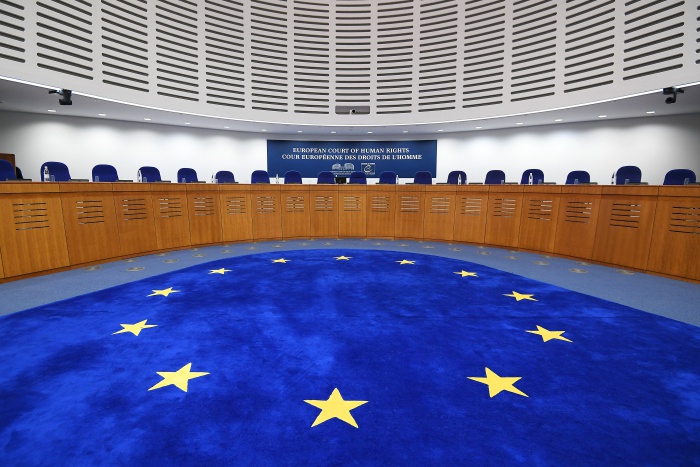The European Court of Human Rights (ECtHR) has notified Ankara of another 1,000 applications on its docket for convictions of Gülen movement membership over the use of the ByLock smartphone application, following a landmark ruling in September that found use of the app did not constitute a credible piece of evidence or a criminal offense, according to a press release from the court.
ByLock, once widely available online, has been considered a secret tool of communication among supporters of the Gülen movement since a coup attempt on July 15, 2016, despite the lack of any evidence that ByLock messages were related to the abortive putsch.
The Gülen movement, inspired by Turkish cleric Fethullah Gülen, is accused by the Turkish government and President Recep Tayyip Erdoğan of masterminding the failed coup and is labeled a “terrorist organization,” although the movement denies involvement in the coup attempt or any terrorist activity.
The recent ECtHR notification, which follows another 1,000 notified to Turkey in December, encompasses five cases —Türkhan v. Türkiye, Geldim v. Türkiye, Kelebek v. Türkiye, Karakuş v. Türkiye and Çinici v. Türkiye , totaling 1,000 individual complaints. These cases, submitted to the Strasbourg court between 2019 and 2023, concern convictions for membership in the Gülen movement.
The European court said its rulings on these cases will come at a later stage.
The applicants argue that their convictions, based on their alleged use of ByLock, violate the principles of the European Convention on Human Rights (ECHR), specifically under Article 7 (no punishment without law) and Article 6 § 1 (right to a fair trial).
The court said in its press release that the core issues raised by the applicants under Article 7 and Article 6 § 1 of the ECHR have already been adjudicated in its Yalçınkaya decision, when the court highlighted that there were over 8,000 applications on the court’s docket involving similar complaints.
As in the notification of the first batch of 1,000 applications in December 2023, the court decided not to put any questions to the parties or to require any observations. It said the Turkish government may submit observations so long as they refer essentially to the factual aspects of the applications and not to preliminary objections or legal issues already decided by the court in the Yalçınkaya ruling.
In its Yalçınkaya decision, the ECtHR ruled that Turkey had violated three articles of the ECHR: Article 6, Article 7 and Article 11 on freedom of assembly and association.
The Grand Chamber based its ruling on teacher Yüksel Yalçınkaya’s alleged use of the ByLock app; membership in a labor union and an association affiliated with the faith-based Gülen movement; and having an account at the now-closed Bank Asya, which are all considered signs of membership in the Gülen movement and criminal evidence.
Legal experts said the grand chamber’s decision made clear that use of ByLock, depositing money at a Gülen-linked bank or being a member of a Gülen-affiliated association cannot be considered criminal evidence against Gülen movement members.
In that judgment the ECtHR underscored the violations that occurred in the conviction were “systemic in nature,” calling on Turkey to take general measures to address the underlying problems, reminding of the presence of over 8,000 similar complaints on its docket.
However, Turkish government officials signaled an unwillingness to address the issue.
Following the coup attempt, the Turkish government declared a state of emergency and carried out a massive purge of state institutions under the pretext of an anti-coup fight. More than 130,000 public servants were summarily removed from their jobs for alleged membership in or relationships with “terrorist organizations” by emergency decree laws subject to neither judicial nor parliamentary scrutiny.
In addition to the thousands who were jailed, scores of other Gülen movement followers had to flee Turkey to avoid the government crackdown.
Turkey was ranked 117th among 142 countries in the rule of law index published by the World Justice Project (WJP) in October, dropping one rank in comparison to 2022.

